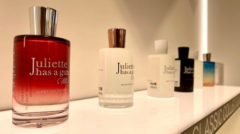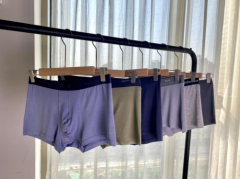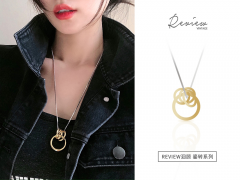
Ushopal集团的BC潮奢Beauty集合店,被JingDaily cover, 被称为在海外Neiman Marcus,Bon Mache,Bloomingdales等全球奢品beauty渠道专属品牌在中国的最佳落脚点。

以下为 Jing Daily 精日传媒完整原文:
How Local Beauty Retailers Are Transforming Luxury Brand Entry into China
Key Takeaways:
Building up strategic collaborations with local e-commerce giants and retailers is vital for independent brands trying to develop their growth potential.
The dynamic roles of market entry partners, from retail to creative, can help brands tap into the extensive and sophisticated consumer base in China.
A concrete omnichannel strategy with strong digital resources and offline presence is vital for new luxury entrants.
If you search guifu (贵妇) – which means noblewomen in Chinese – on the Little Red Book app, you will find over 240,000 posts and reviews. This guifu consumer trend emerged before COVID-19 and refers to the various dimensions of product features (from packaging to pricing) that are synonymous with the luxury beauty category.
The craze has evolved post-pandemic, and it now means the sharing of high-end cosmetics products, skincare, and fragrances on specialized beauty and lifestyle platforms. In China, local luxury retailers like Bonnie & Clyde agilely tapped into the latest iteration of this trend.
By collaborating with international brands such as the Barcelona-based luxury skincare brand Natura Bissé and the Parisian fragrance brand Juliette Has A Gun, Bonnie & Clyde has helped them to reach some of the most discerning clientele while generating ticket prices over upwards of $1500 in the process.
Since the pandemic started, there has been a significant slowdown in premium beauty and personal care sales, as compared to the double-digit growth from 2019. But, the sector is still relatively strong. According to a Euromonitor called report Premium Beauty and Personal Care in China, released in June, sales in the sector are expected to grow by 9 percent in 2020.
Indeed, the premium beauty market in China is one of the great opportunities today, given that Chinese consumers have a positive financial outlook and a growing appetite for self-care. They are currently able to purchase established luxury names such as La Mer and La Prairie from local department stores, stand-alone boutiques, and duty-free shops.
But now, independent brands outside of the major luxury or beauty conglomerates are seeing an uptick in their social channel followings. Consulting firm Kantar’s whitepaper on Chinese beauty consumer behavior pointed out that niche brands make up 30 percent of the country’s overall beauty consumption.
Local consumers’ demands for premium products and new or niche beauty brands have primarily been met by mid-end markets that are collaborating with retailers like Sephora. Meanwhile, the super-luxury tier of global brands normally found at Neiman Marcus and Paris Bon Marché are entering China through Bonnie & Clyde, setting the bar for the world’s most prestigious brands and services.
Brands that have been cautious about entering the China market, like Natura Bissé and Juliette Has A Gun, have identified Bonnie & Clyde as their exclusive retailer in the Mainland. Not only does this news confirm the tangible opportunities at the high end of the market, but it also cultivates competition by disrupting the sector, keeping brands across the board on their toes.
For new brands aiming to strengthen their hold in the Chinese market, Bonnie & Clyde offers several guidelines for foolproofing your position in the sector.
Identifying Chinese consumer demands in a new luxury cosmetic market
The ultra-luxury cosmetics market is stereotypically linked to elite class consumers, and this consumer group is more extensive and sophisticated in China than elsewhere in the world. The Kantar and Tmall April report Embracing New Opportunities In The Post-Covid Era painted a wider and younger consumer user base profile for the higher-end beauty market. The robust market volume offers prosperous opportunities for luxury players but was not without its unique obstacles for entering the market.
Among these is the question of how to monetize the new breed of enthusiastic beauty consumers on social media. They are often considered a pain point for new entrants, especially when it comes to starting or strengthening brand awareness among local shoppers. Social platforms like WeChat, Weibo, and Little Red Book, as well as online marketplaces such as Tmall and JD.com, dominate domestic digital channels. Therefore, building strategic collaborations with local e-commerce giants and retailers is vital for independent brands that want to develop their growth potential.
Starting from no awareness in the China market at all, the niche brand Juliette Has A Gun has seen its growth skyrocket over the past ten months. Before the fragrance label teamed up with Bonnie & Clyde, it had only posted 20 times on Little Red Book and had limited search engine optimization reach due to the brand’s tricky Chinese translation. But, thanks to the retailer’s one-year, omnichannel operation, Juliette Has A Gun has been ranked by Tmall as one of August’s top three niche fragrance brands.
The brand’s managing director of APAC, Caroline Trone, told Jing Daily that the Chinese perfume ecosystem is very different from the European one since it is mostly online. As such, omnichannel business and social media management are key success factors there. “Of the dozens of partners that we met over two years, Bonnie & Clyde was the only company fully integrating those two,” Tronel noted.

A concrete omnichannel strategy with strong digital resources and offline presence is vital for new luxury entrants. Photo: Bonnie & Clyde.
The dynamic roles of retail partners, from selling to creativity
Yet, the partnership between the French perfume brand and Bonnie & Clyde extends beyond distributing products via the retailer’s online and offline channels. Juliette Has A Gun also launched a stand-alone Tmall flagship store on September 8, and within 24 hours, it ranked first in the platform’s fragrance category. But this hype was not built up overnight.
Bonnie & Clyde offers many tailored social marketing strategies for the brands it works with, which organically improve awareness and engagement in the early stages. Two of the fundamental principles Bonnie & Clyde follows when partnering with creatives and influencers are freedom and spontaneity. Those ensure that sponsored social posts, which align with KOLs’ aesthetics and visual languages, produce organic, high-quality content output.
“The China market is fast-growing, energizing, and demanding but definitely rewarding.”
Meanwhile, Bonnie & Clyde tap subculture groups — the LGBT community, artists, and gourmands — that are often associated with various scents. By leveraging unique storytelling with KOL specialization, the retailer can harness professionally-generated content to drive user-generated feedback, which helps brands develop a wider reach across sub-communities.
Tronel attributed Juliette Has A Gun’s outstanding performance to investing in social content-driven KOLs as well as efficient media plans mapped out by Bonnie & Clyde. “We are learning so much [from the day-to-day cooperation with Bonnie & Clyde],” she said. “The China market is fast-growing, energizing, and demanding but definitely rewarding.”
How omnichannel solutions lead to more beauty rivalries
China’s e-commerce landscape is the most dynamic in the world, and its online sales have fueled the beauty sector — especially during the pandemic. But brick-and-mortar tactility is still vital to local shoppers post-COVID-19. Bonnie & Clyde’s in-store beauty experts, in particular, offer a range of services. They educate consumers on new products and brands, provide customers with personalized services, including skin tests and SPA, and offer knowledge-sharing scientific skincare sessions.
A concrete omnichannel strategy with strong digital resources and offline stores in a central shopping area like Jing An Kerry Centre in Shanghai is vital for new luxury entrants. Given that its brands can be new to some local shoppers, they are promoted online to help build up awareness while finding footfall in their physical stores. As importantly, Bonnie & Clyde extends its brand of experiential marketing beyond stores. It often teams up with local private luxury clubs, including Kee Club, to host offline events that build intimate connections with VIP customers.
Through Bonnie & Clyde’s community-building measures, the company is forging an inclusive and ever-expanding customer base. Meanwhile, a bundle-selling strategy, featuring gifts like luxury beauty boxes that group skincare and fragrance products with unique and limited edition gifts encourages customers to make cross-category and cross-brand purchases.
From social selling to memorable, in-store experiences that are elongated beyond physical events, Bonnie & Clyde is achieving a higher customer loyalty and retention rate over the long-term. Thus, brands who work with such reliable local retailers are not only helped in finding their target customers, but they will also live much longer in the minds of their highly-valued community.





